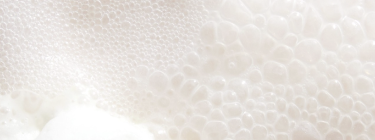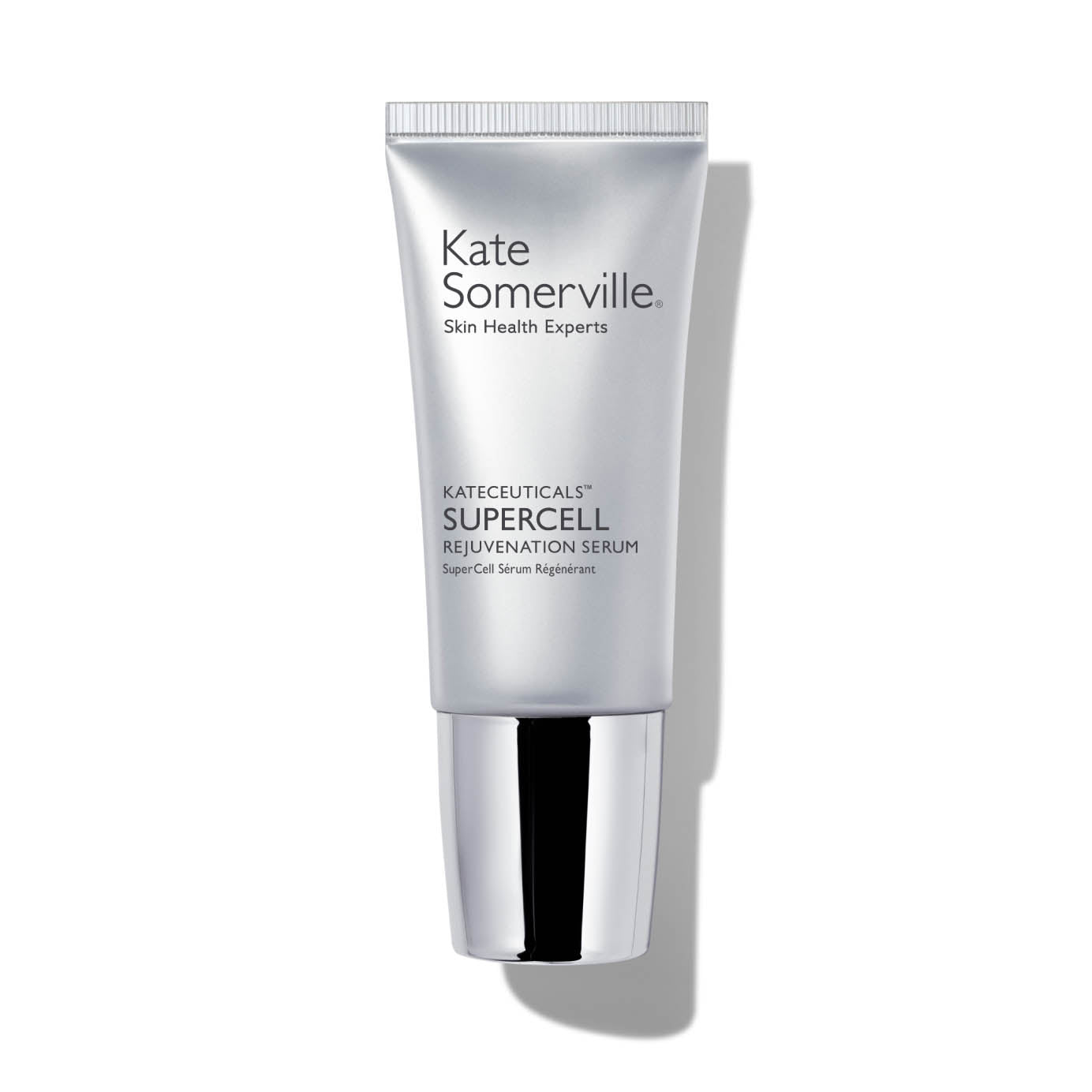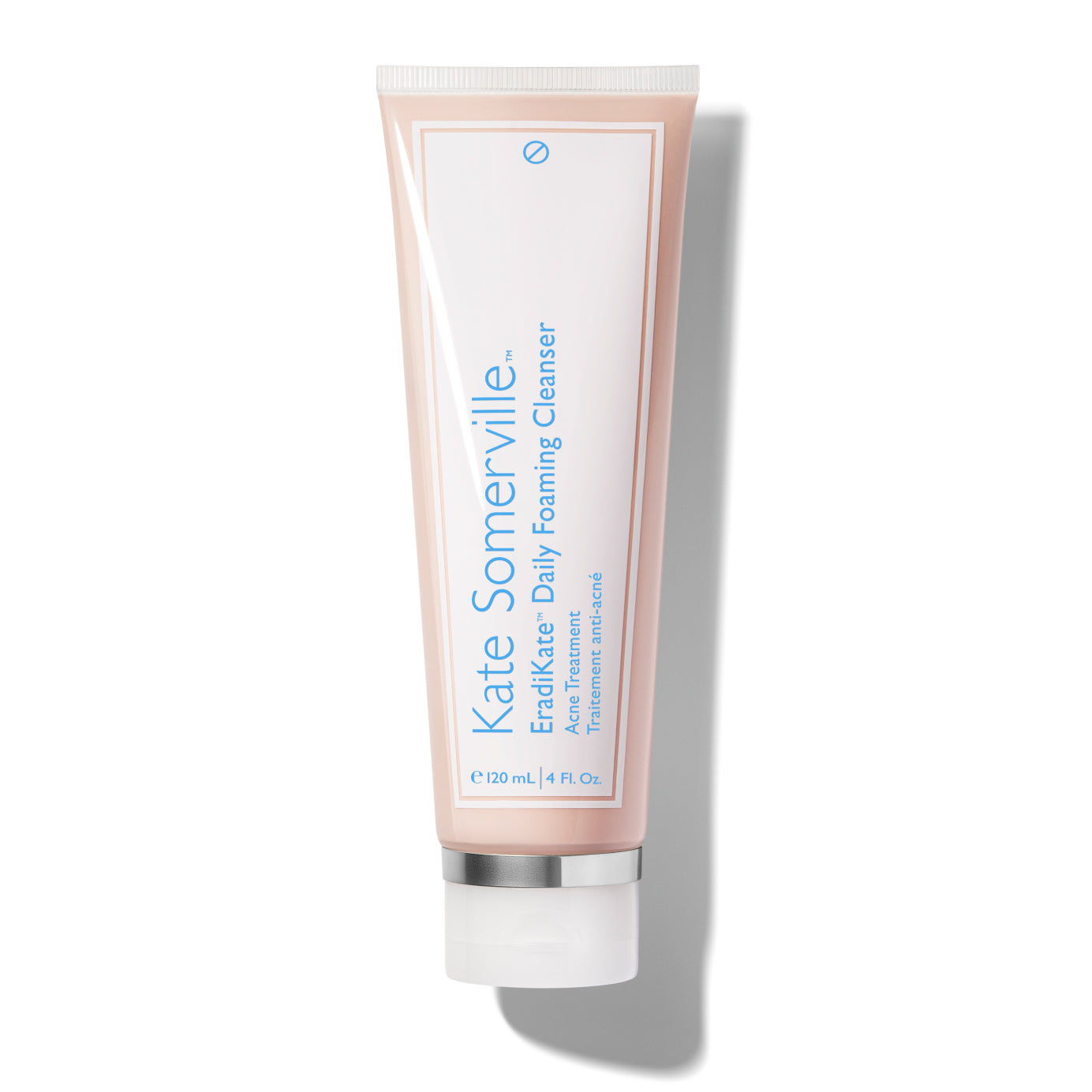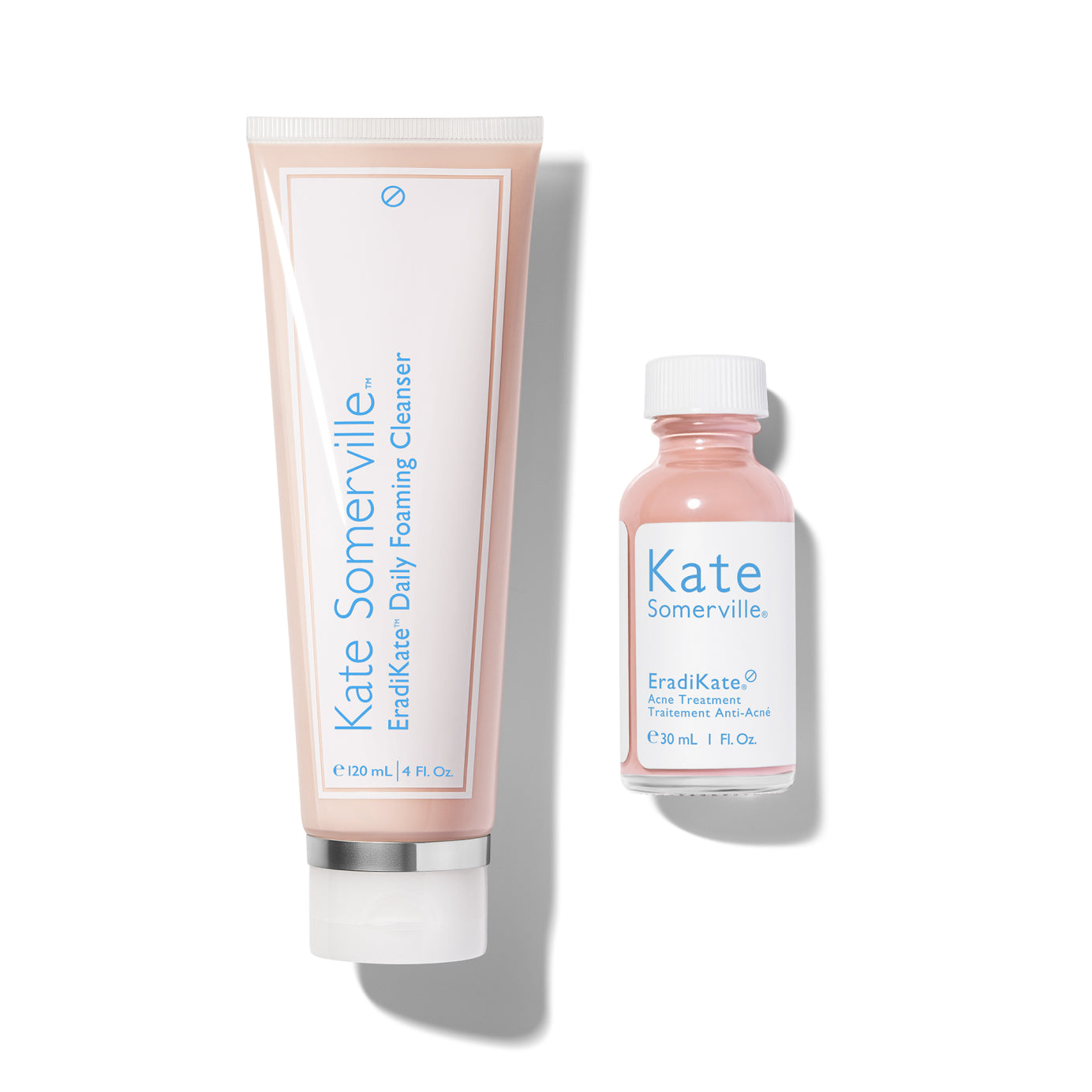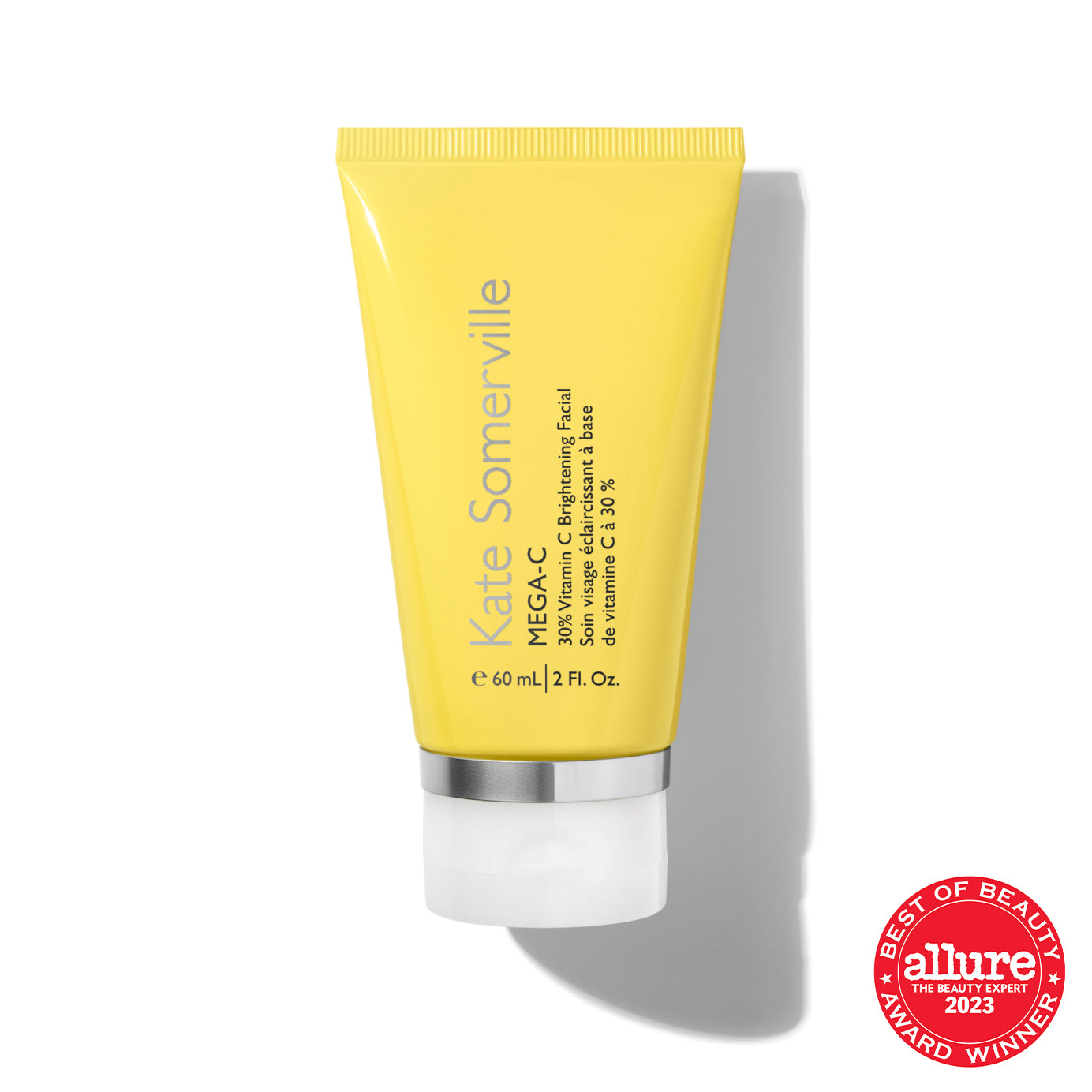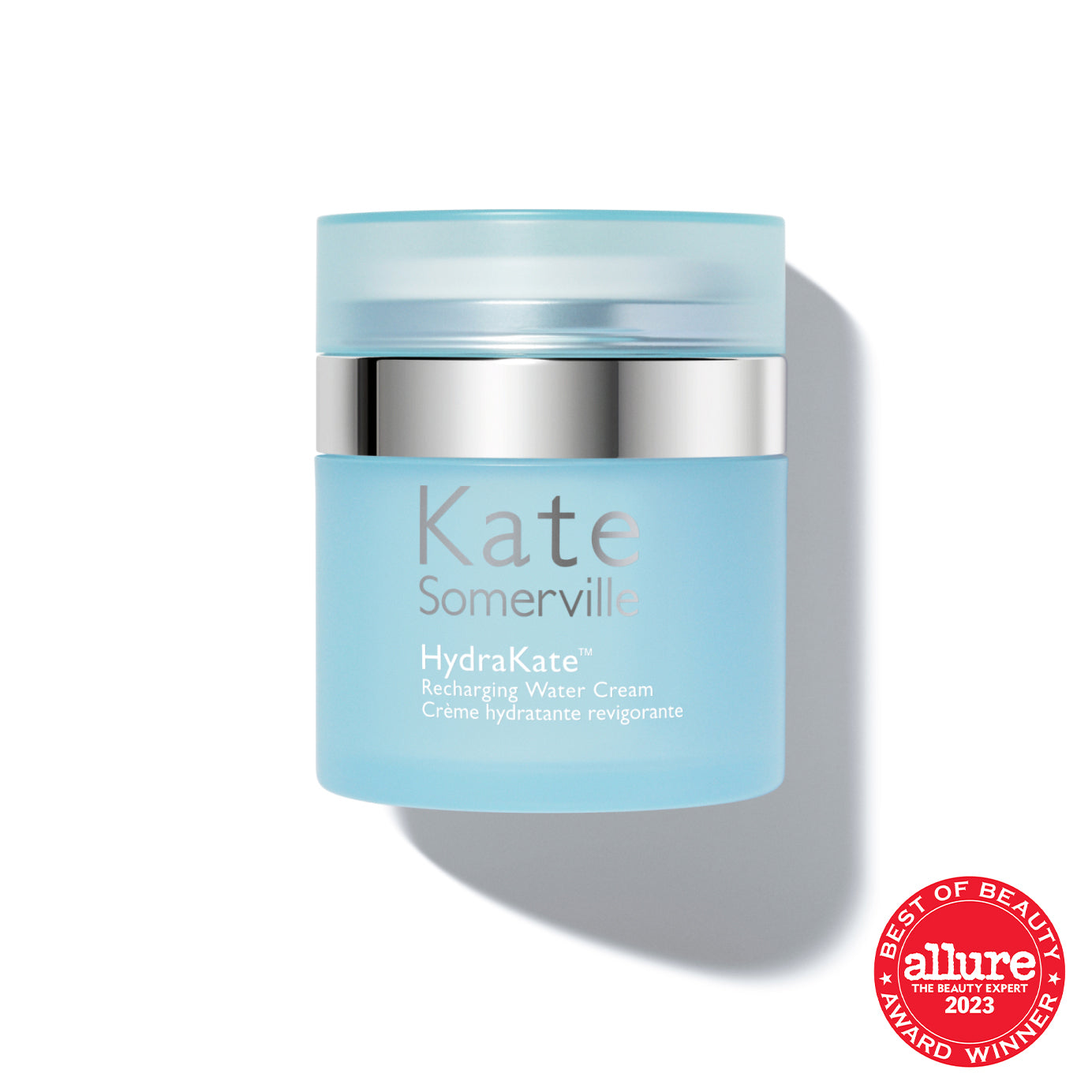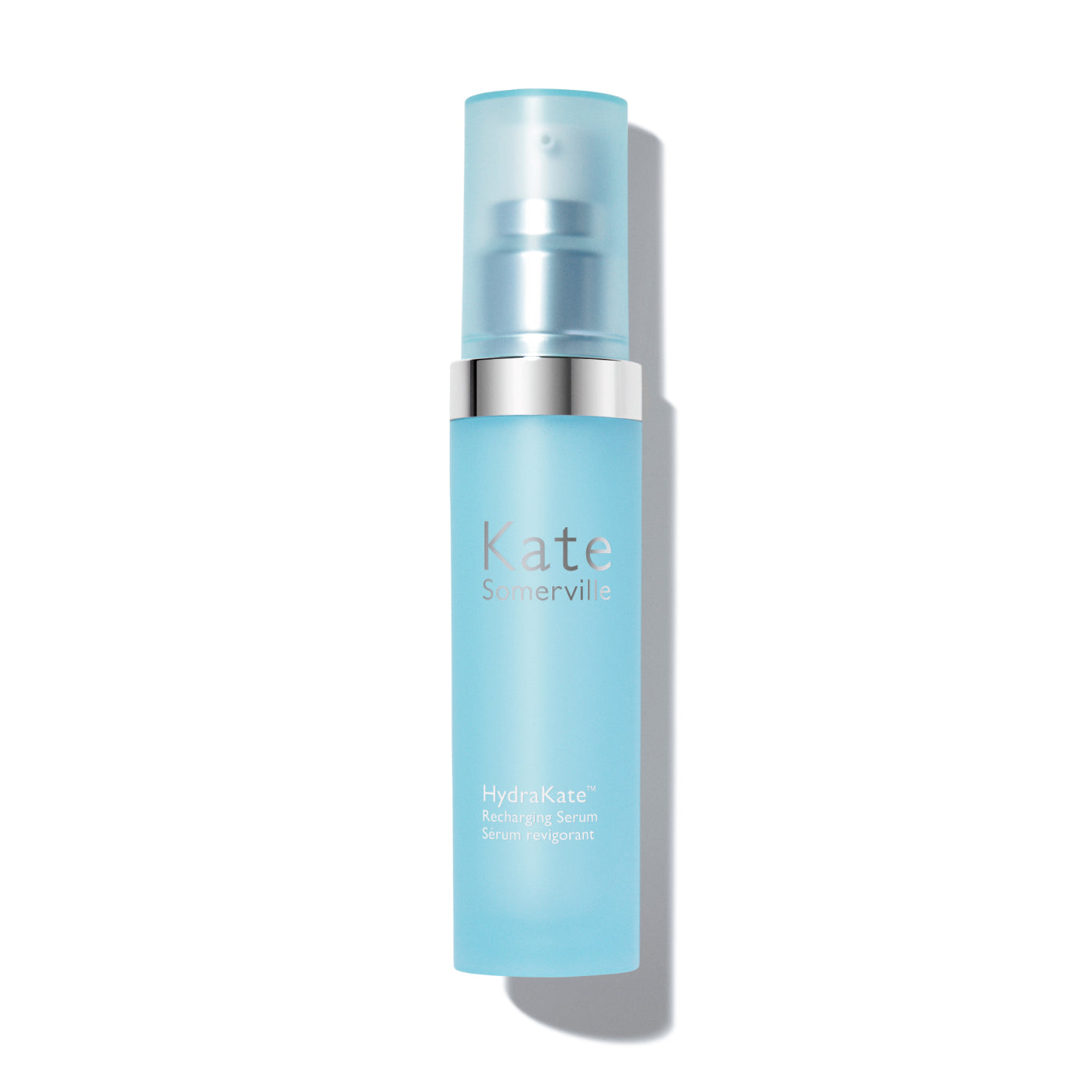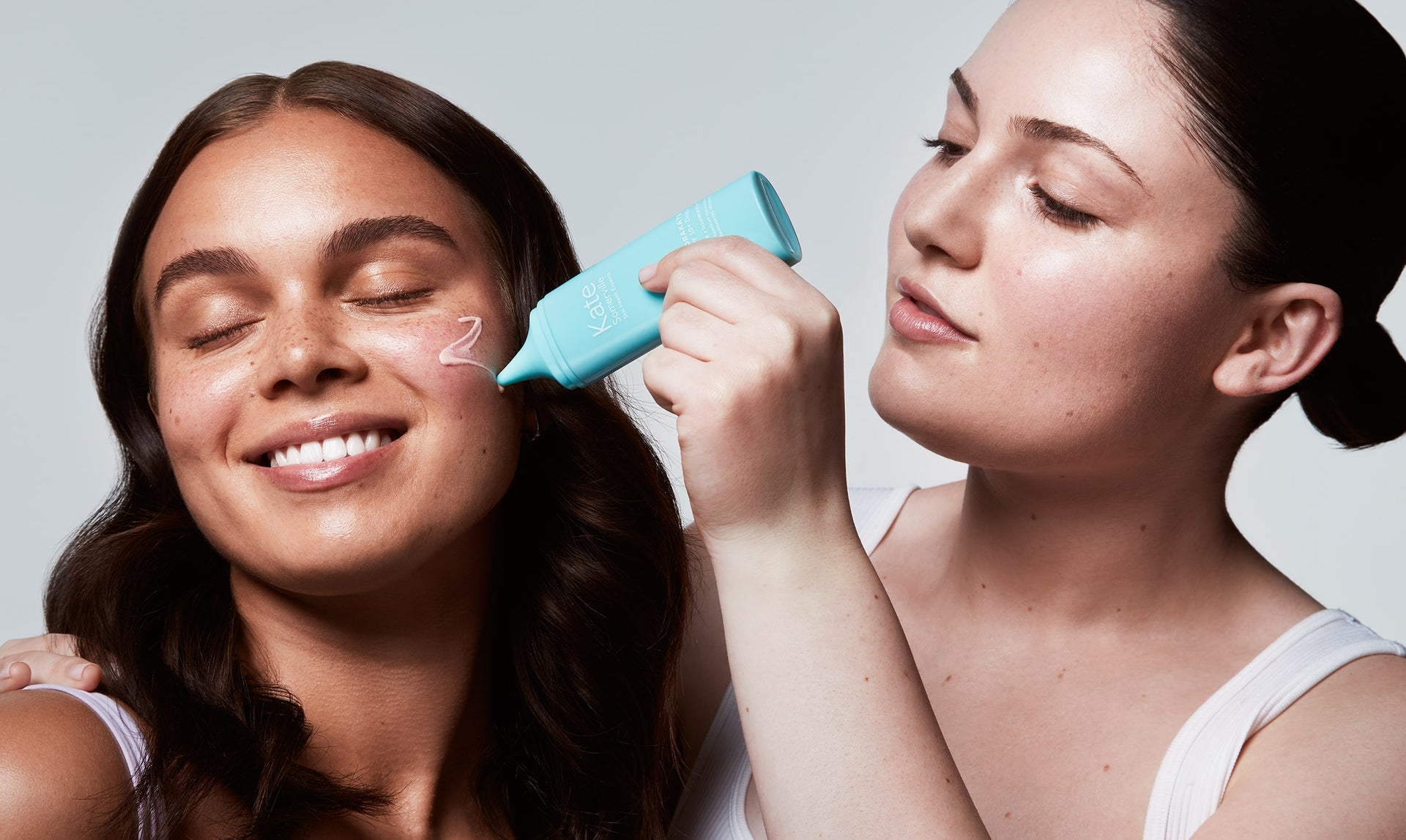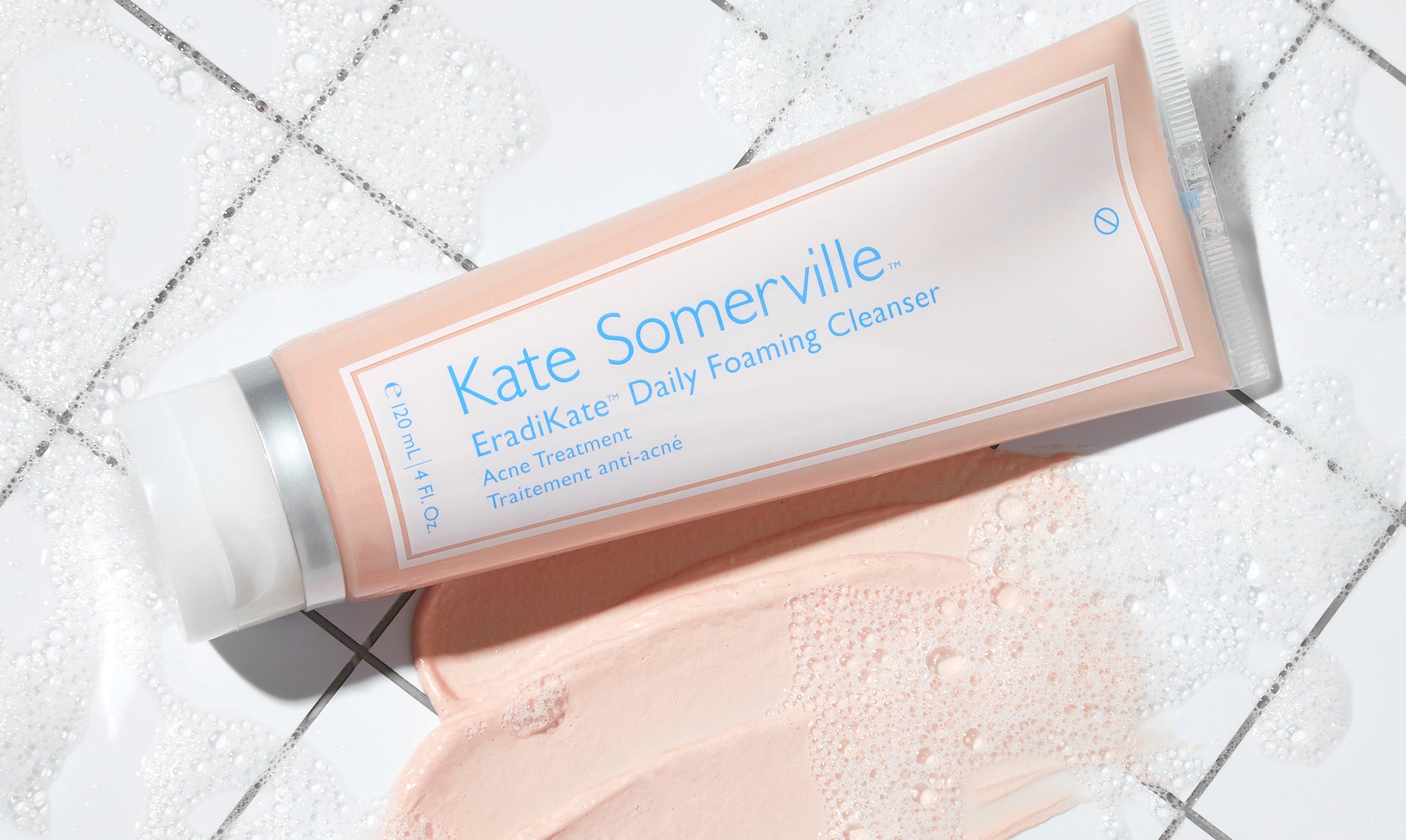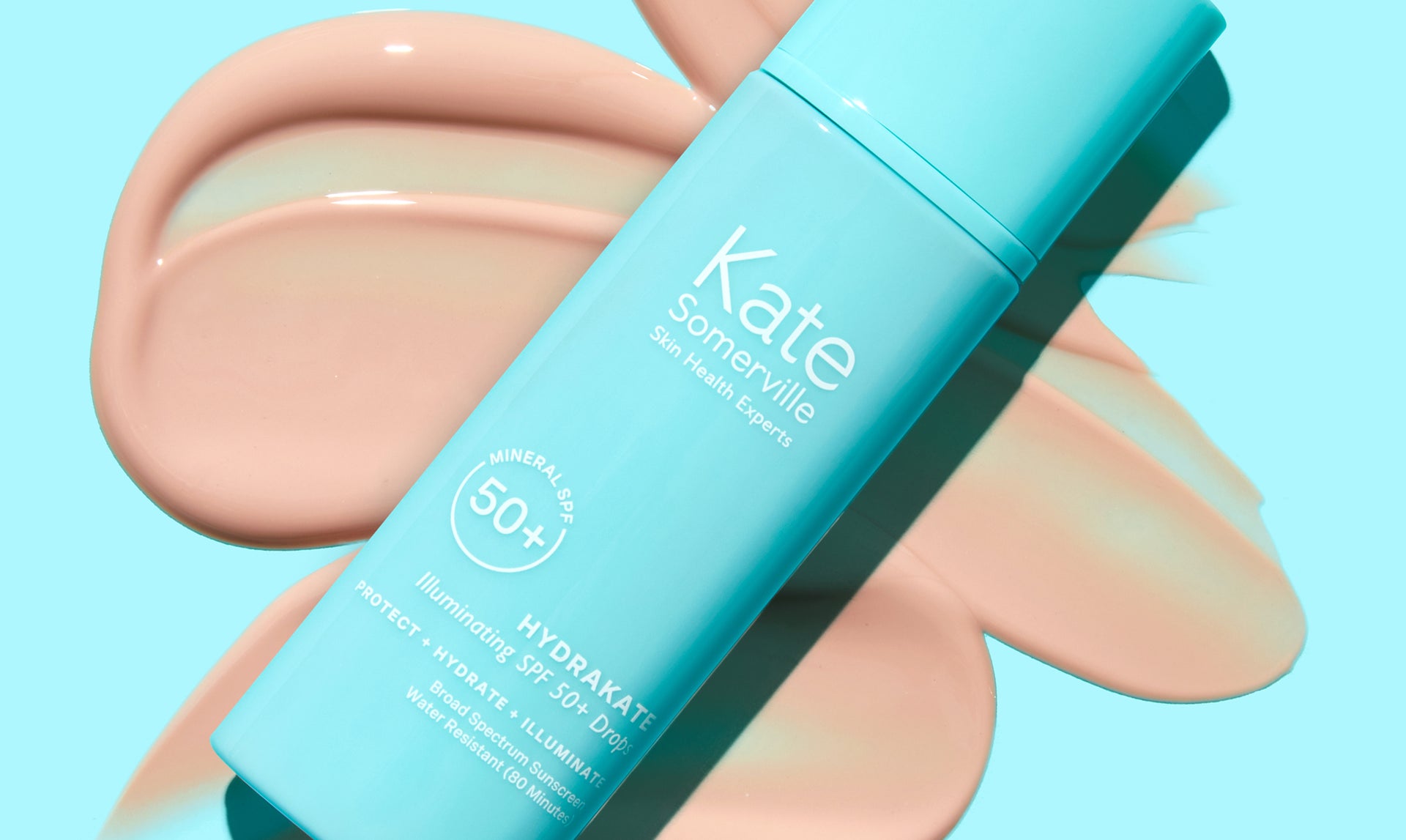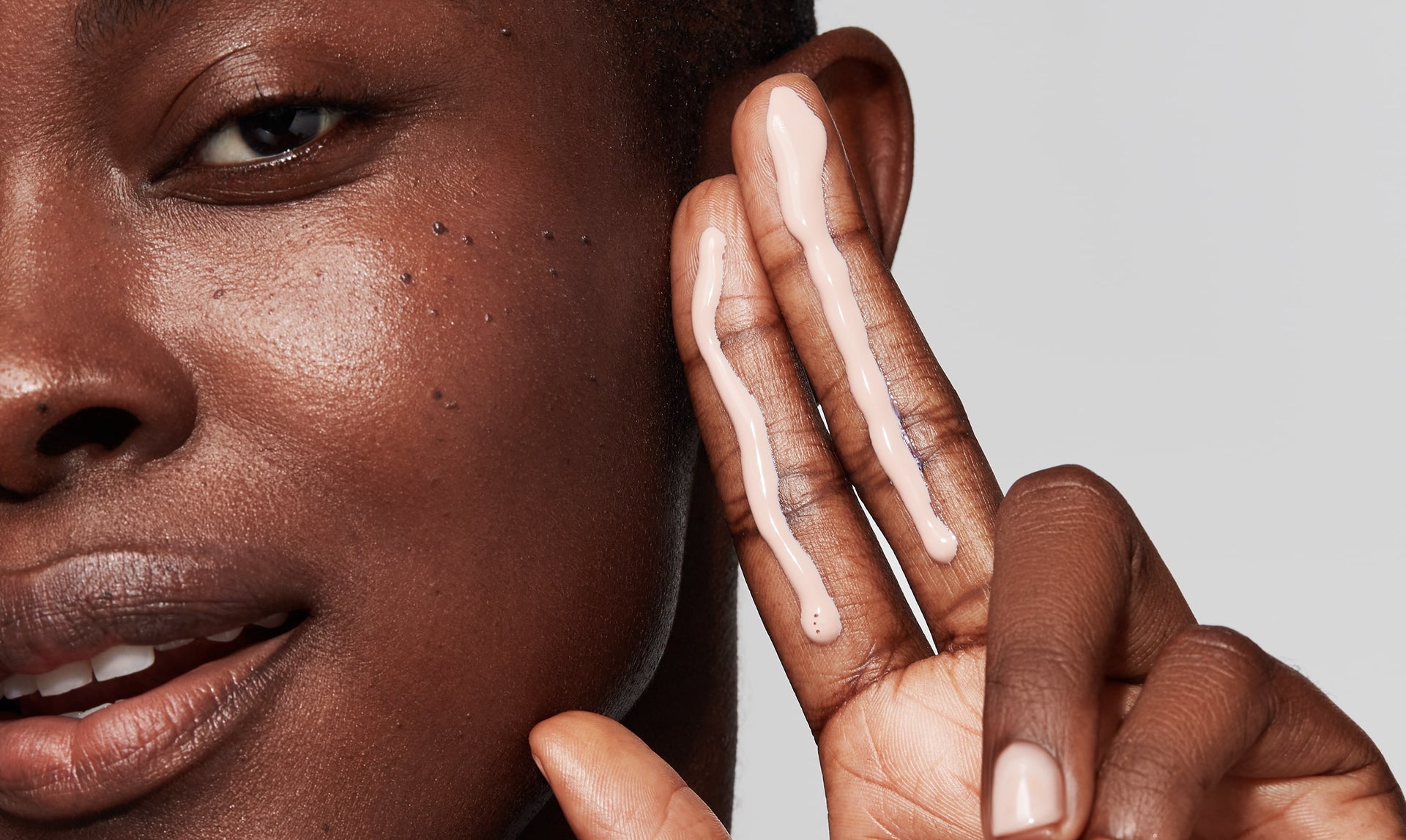Eczema on the Face - Triggers & Treatments
Many of us dream of waking up each morning with radiant, healthy facial skin. But if you’ve been waking up instead with rashes or itchy, dry skin on your face despite all the skin care steps you take, it can feel like a mystery.
Luckily, these irritated skin symptoms could have a simple explanation: eczema. This common skin condition is an inflammation disorder linked to your immune system and could be behind the itchy, red, irritated skin you’ve been experiencing.[1]
Identifying your facial eczema is an important first step toward finding skin relief. But how do you avoid a future eczema flare up or treat presently occurring ones? What products help, and when should you schedule a visit to a skin care clinic? Below, our Skin Health Experts reveal the most common triggers and treatments for eczema on the face. .
What Is Eczema?
If the symptoms you’ve been experiencing are relatively new, you might not be familiar with eczema or even know what it is. In short, eczema is an immune system-related condition that can occur when your immune system is overactive, making your body and facial skin dry, itchy, and uncomfortable.[2]
If you’re unsure of what’s triggering your eczemaprone skin, research suggests that the initial onset of eczema-prone skin has to do with genetic and environmental factors.[3] If you have facial eczema, you may notice periods where you’re not that bothered by it, and then have “flare-ups” where your skin inflammation symptoms noticeably worsen.
Flare-ups are usually marked by the following skin condition symptoms:[4]
- Extremely dry patches
- Intense itchiness
- Red, cracked skin
- Clear fluid that oozes out of dry patches
Once you know what to look for, these signs can help you identify when your eczema symptoms might need some extra care. But how do you know what’s setting off your severe eczema so you can better manage this condition? In truth, it’s all about the triggers.
Common Eczema Triggers
A plan to prevent eczema flare-ups can help you achieve calm, glowing skin and spend more time achieving flawless makeup looks, artful manicures, or whatever makes you feel your best. The key here is to understand the triggers—the outside factors that can cause your severe eczema to appear.
Since we don’t know exactly what causes the skin inflammation of eczema, the best way to tackle it is by avoiding the triggers that cause flare-ups. The most common ones to be aware of include:[5]
- Stress – Eczema is a physical condition, meaning emotions can’t trigger it, right? Not so fast. When you’re feeling stressed or anxious, your body releases hormones such as stress and cortisol.[6] These hormones can upset your skin barrier’s delicate balance, causing an eczema flare-up.
- Your diet – It’s well known that certain foods can affect your skin, which extends to eczema as well.[7]Eating inflammatory foods or foods you’re allergic to can lead to an eczema flare-up, especially if you consume these foods in large quantities.
- The weather – Depending on your skin type, you might notice certain weather conditions trigger your eczema.[8] For example, if the cold weather dries your sensitive skin out, you might notice more eczema in the winter. Or, if sweating from humidity does a number on your scaly skin, you might see your atopic dermatitis condition worsen in warmer weather.
- Scented skincare products – While we might all love a yummy, scented moisturizer, your sensitive skin could disagree. Rubbing fragrance onto your face could irritate your skin and make you more likely to experience the rashes and itchiness that come with eczema.[9] Our Skin Health Experts recommend steering clear of fragrance-heavy products and instead trying hypoallergenic ones. P
Not everyone has the same triggers, so it’s important to monitor and identify which ones upset your skin. For instance, you might find that foods don’t affect you, but any scented skin care product gives you a rash. Knowing your triggers can help you plan accordingly and stay symptom-free.
How Do You Treat Eczema?
Identifying your eczema triggers can help you avoid future flare-ups, but what if you’re already in the middle of one? Some skin care strategies can help you minimize eczema symptoms when they happen and provide plenty of relief.
You can try the following treatments to relieve current symptoms::[10]
- Moisturizers
- Over-the-counter allergy medications (antihistamines)
- An oatmeal bath
- Light therapy
- Immunosuppressants
- Topical medication applied directly to your skin
Note that some treatments, like medications and prescription creams, may require a prescription from a healthcare provider. But others, like soothing moisturizers, can provide some relief in the moment.
If you’re looking for a gentle moisturizer to calm your itchy, dry skin, consider a treatment designed with eczema symptoms in mind—like the Kate Somerville Goat Milk Moisturizing Cream. This cream offers your skin intense hydration and works to reduce the appearance of irritation and redness, making it the perfect option to soothe skin. Just make sure you understand the difference between eczema and psoriasis [1] before using.
Take on Your Eczema with Kate Somerville
Understanding how to identify the clues of eczema vs dermatitis[2] can help stop triggers in their tracks and can help you take control of your specific skin condition. Along the way, you might also need to enlist the help of a seasoned Skin Health Expert.
At Kate Somerville, our founder knows the struggle of eczema on a personal level.[11] Growing up, she struggled with eczema. That’s why we create products that provide visible results, like our Goat Milk Duo. The soothing formula is sure to help even the most delicate skin, and the goat’s milk in it can bring you the same relief it brought Kate.
Give your skin the relief it deserves with Kate Somerville.
Sources:
National Eczema Association. What is Eczema? https://nationaleczema.org/eczema/
National Eczema Association. Eczema Causes & Triggers. https://nationaleczema.org/eczema/causes-and-triggers-of-eczema/
National Eczema Association. Managing Itch. https://nationaleczema.org/eczema/itchy-skin/
Kate Somerville. Meet Kate. https://www.katesomerville.com/us/en/meet-kate.html
[1] National Eczema Association. Eczema Causes & Triggers. https://nationaleczema.org/eczema/causes-and-triggers-of-eczema/
[2] National Eczema Association. What is Eczema? https://nationaleczema.org/eczema/
[3] National Eczema Association. What is Eczema? https://nationaleczema.org/eczema/
[4] National Eczema Association. Eczema Causes & Triggers. https://nationaleczema.org/eczema/causes-and-triggers-of-eczema/
[5] National Eczema Association. Eczema Causes & Triggers. https://nationaleczema.org/eczema/causes-and-triggers-of-eczema/
[6] National Eczema Association. Eczema Causes & Triggers. https://nationaleczema.org/eczema/causes-and-triggers-of-eczema/
[7] National Eczema Association. Eczema Causes & Triggers. https://nationaleczema.org/eczema/causes-and-triggers-of-eczema/
[8] National Eczema Association. Eczema Causes & Triggers. https://nationaleczema.org/eczema/causes-and-triggers-of-eczema/
[9] National Eczema Association. Eczema Causes & Triggers. https://nationaleczema.org/eczema/causes-and-triggers-of-eczema/
[10] National Eczema Association. Managing Itch. https://nationaleczema.org/eczema/itchy-skin/
[11] Kate Somerville. Meet Kate. https://www.katesomerville.com/us/en/meet-kate.html
